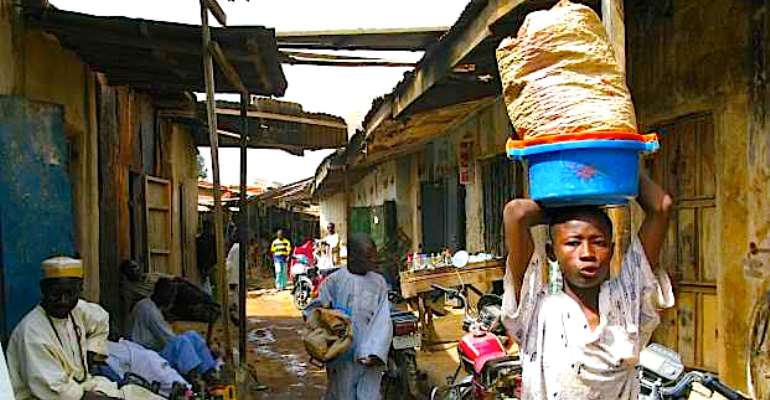2023: Expediency Of Tackling Poverty To Bridge Widening Trust Gap In Governance

It is not misconceived to say that as 18 presidential candidates and their running mates that have been cleared by the Independent National Electoral Commission (INEC) to contest in the oncoming election scheduled to hold on February 25, 2023, are aggressively carrying out electioneering across the length and breadth of diverse constituencies across the country that they are equally being put under scrutiny for lack of trust by the public. Justified or unjustified, the criticisms currently facing the political elite come after a barrage of complaints of bad leadership since Nigeria adopted a democratic system of government in 1999, even as not a few sincere politicians are in turmoil as they grapple with a collective negative perception from the public, who are invariably the electorates they have been selling their candidacies to since INEC kicked off the campaign in earnest on September 28, 2022.
As gathered, this year (2022), the Nigeria Social Cohesion Index (NSCI) in research findings stated that “Trust for President Buhari’s government has substantially declined to 17 percent from 26 percent in 2021.”
The survey found that trust in the National Assembly and the Judiciary declined to 16 percent and 22 percent, respectively from 22 percent and 26 percent in 2021.
The data reveals that the National Assembly (16 percent) is now the least trusted public institution in Nigeria, overtaking the Nigeria Police Force, which was the least trusted (20 percent) in the 2021 survey.
About 60 per cent of citizens believe that the future of the country would be better than it is presently; compared to 27 per cent who expressed pessimism that the future would be worse; and 6 per cent simply do not foresee any change in the future.
In the past year, 59 per cent of Nigerians believed the country would have a better future while 27 per cent said the future of Nigeria would be worse.
Over the years, great efforts have been made by the electorates to ensure that credible leaders are elected into various political positions of governance, but each time patriotically exercise their civic rights to vote for better candidates for better leaders to emerge, inept and corrupt leaders will emerge victorious and thus made to become leaders in strategic political positions. The reasons for the foregoing cannot be farfetched as elections are allegedly rigged from one electoral dispensation to the other. Seen from another perspective, those considered to be credible leaders are either affiliated with parties that do not resonate well at the polls or do not have godfathers. Ostensibly due to the foregoing reasons, candidates that are affiliated with the two mainstream parties; All Progressives Congress (APC) and the People Democratic Party (PDP) are mostly seen to be victorious, and become leaders in various categories of political positions upon the conclusion of every election; being it general or presidential.
Analyzed from the backdrop of the foregoing view, it is expedient to ask, “Can our political leaders be able to bridge the gap between government and citizens? To this writer, the answer to the foregoing question is in the affirmative as not few Nigerians are seeing 2023 as an auspicious era for credible leaders to emerge en masse, and roll up their sleeves running to bridge the widening trust gap that has been in governance for ages; prior to 1999 when Nigeria embraced democratic system of government.
It is not an exaggeration to say that not a few Nigerians are unhappy with the state of the state governance, particularly since the two-tenured administration of President Muhammadu Buhari commenced in 2015. Without resorting to ridiculing any leader in this context, since 2016 in Nigeria, distrust has been running high; fiscal pressures have been mounting; service delivery does not reach the people; corruption scandals abound and conflict seems on the rise.
Unarguably due to bad leadership, the National Bureau of Statistics has a few days ago disclosed that 133 million Nigerians are multi-dimensionally poor.
In its latest National Multidimensional Poverty Index report launched on Thursday, the NBS said that 63 percent of Nigerians were poor due to a lack of access to health, education, living standards, employment, and security.
The Multidimensional Poverty Index offers a multivariate form of poverty assessment, identifying deprivations across health, education, living standards, work, and shocks.
The Statistician-General of the Federation and CEO of the NBS, Semiu Adeniran, said this was the first time the bureau would conduct a standard multidimensional poverty survey in Nigeria.
“The survey was implemented in 2021 to 2022 and it is the largest survey with a sample size of over 56,610 people in 109 senatorial districts in the 36 states of Nigeria,” he said.
At this juncture, it is expedient to sensitize the presidential aspirant that would emerge victorious come February 2023 that successfully addressing the issue of poverty will go a long way to bridge the trust gap between those at the corridors of power and the people.
Again, it is expedient to say that even though the current environment for governance is daunting, there are some opportunities that the next crop of leaders should not miss. One of such opportunity is that of achieving all seventeen Sustainable Development Goals (SDGs). Unfortunately, achieving the goals will not be possible without peace, justice, and strong institutions (SDG Goal 16). In fact, as 2023 beckons, any politician aspiring to participate in either the presidential or the general election should have the agenda set in this piece at the back of his or her mind as we cannot afford to keep Nigeria groaning under bad leadership anymore.
